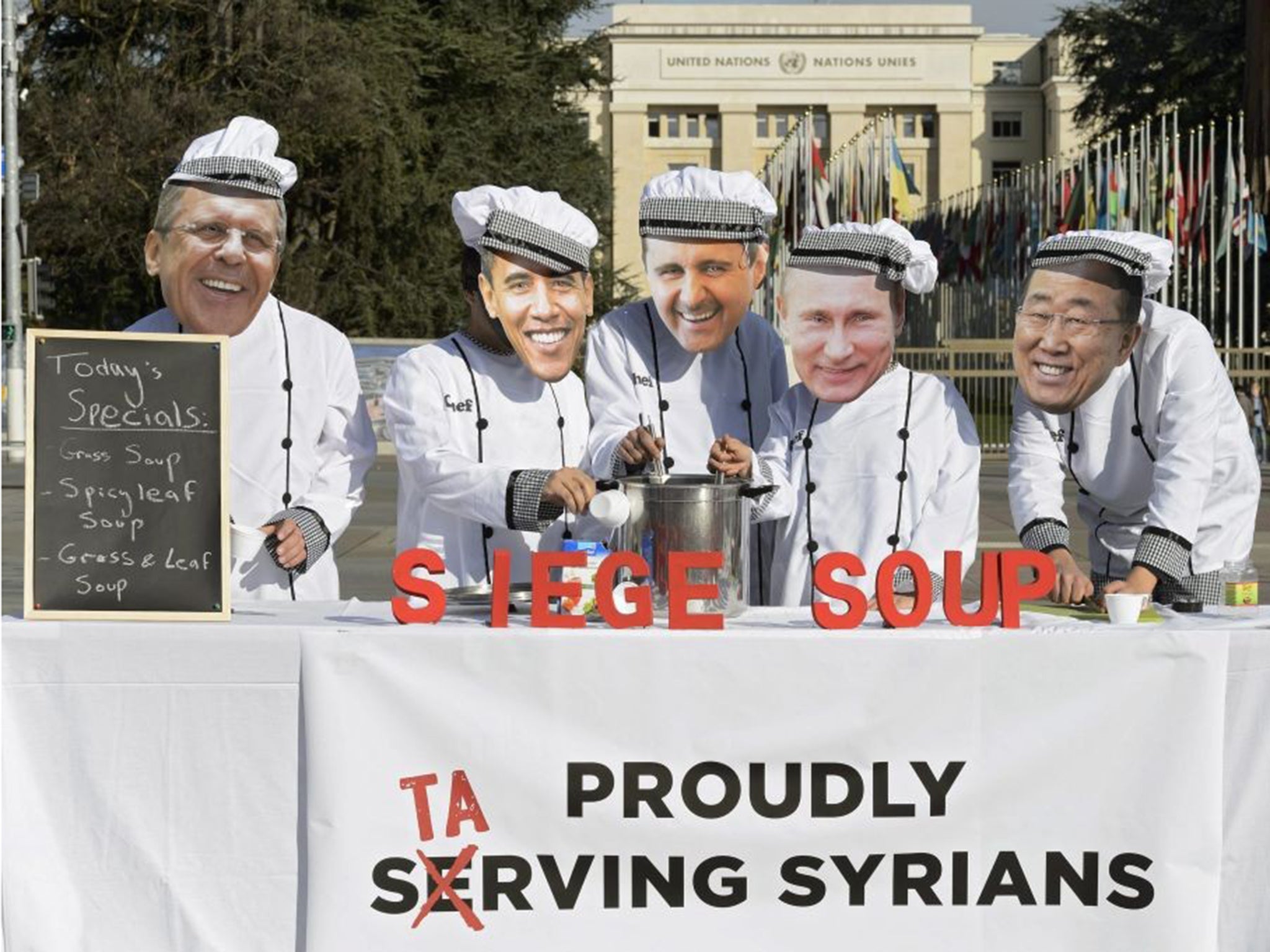Syria talks: Geneva negotiations in disarray as UN 'can't give a who, where or when'
Opposition monitoring groups claim that air strikes and shelling continued across the country, claiming victims including a six-month-old girl and a 60-year-old woman.

Your support helps us to tell the story
From reproductive rights to climate change to Big Tech, The Independent is on the ground when the story is developing. Whether it's investigating the financials of Elon Musk's pro-Trump PAC or producing our latest documentary, 'The A Word', which shines a light on the American women fighting for reproductive rights, we know how important it is to parse out the facts from the messaging.
At such a critical moment in US history, we need reporters on the ground. Your donation allows us to keep sending journalists to speak to both sides of the story.
The Independent is trusted by Americans across the entire political spectrum. And unlike many other quality news outlets, we choose not to lock Americans out of our reporting and analysis with paywalls. We believe quality journalism should be available to everyone, paid for by those who can afford it.
Your support makes all the difference.
Hours before the biggest push to end the bloody Syrian conflict in two years was due to begin, confusion reigned supreme. The United Nations spokesman, Ahmad Fawzi, insisted at a press briefing in Geneva that the peace talks would get under way, but admitted: “I can’t give you a time, I can’t give you a who, where, when.”
It set the tone for a chaotic start to the UN-led negotiations. The opposition started the day sticking to a pledge to boycott the event unless the bombing of civilian areas was halted and food allowed to reach besieged towns.
Staffan de Mistura, the UN diplomat charged with bringing an end to a war that has so far defied two major drives to solve it, had insisted that the process should begin. At about 5pm local time, a Syrian government delegation led by its UN ambassador Bashar al-Jaafari arrived at the UN Palais des Nations for the inaugural meeting. Then Saudi-backed Syrian opposition groups, organised under the banner of the Riyadh-based High Negotiations Committee (HNC), confirmed it would attend to “test the seriousness of the other side”, following assurances from the UN and from the US Secretary of State, John Kerry.
The HNC’s statement came with a caveat: it would meet Mr de Mistura, but not be involved in negotiations with the Syrian government.
The talks mark the first time that all the external powers invested in the Syrian war have backed a drive to halt the five-year conflict, which has claimed at least 260,000 lives, created millions of refugees and allowed a violent jihadist group to commandeer a swath of territory. However, with a complex web of competing interests and rows over who should attend, participants and observers alike have been deeply pessimistic about the prospects of a breakthrough.
Thanks to the intervention of the Russian air force, pro-government forces have secured a series of recent gains and put the Syrian President, Bashar al-Assad, on the front foot. As talks got under way, opposition monitoring groups claimed that air strikes and shelling continued across the country, claiming victims including a six-month-old girl and a 60-year-old woman.
The official opposition has accused the US of caving in to the demands of Syria and its allies by softening its stance on President Assad’s future role.
Mr de Mistura himself had sought to lower expectations. Speaking earlier this week, he made clear that the process would begin with “proximity talks” rather than direct negotiations between warring factions. He had hoped, however, that all sides would at least turn up. In a scathing interview on the eve of the conference, Riad Hijab, who heads the opposition council formed in Saudi Arabia last month, made clear the group’s frustrations.
Referring to the Syrian town whose inhabitants were forced to eat weeds and cats after a six-month siege by pro-Assad forces, he said: “The United States has been unable to get a can of milk to a starving child in Madaya. Can such an international community accomplish a peaceful transition after five years of criminalities and atrocities by Bashar al-Assad?”
The opposition’s Western allies had warned that it would be handing the Syrian regime a publicity coup if it allowed the regime to look like the only side willing to negotiate.
Join our commenting forum
Join thought-provoking conversations, follow other Independent readers and see their replies
0Comments